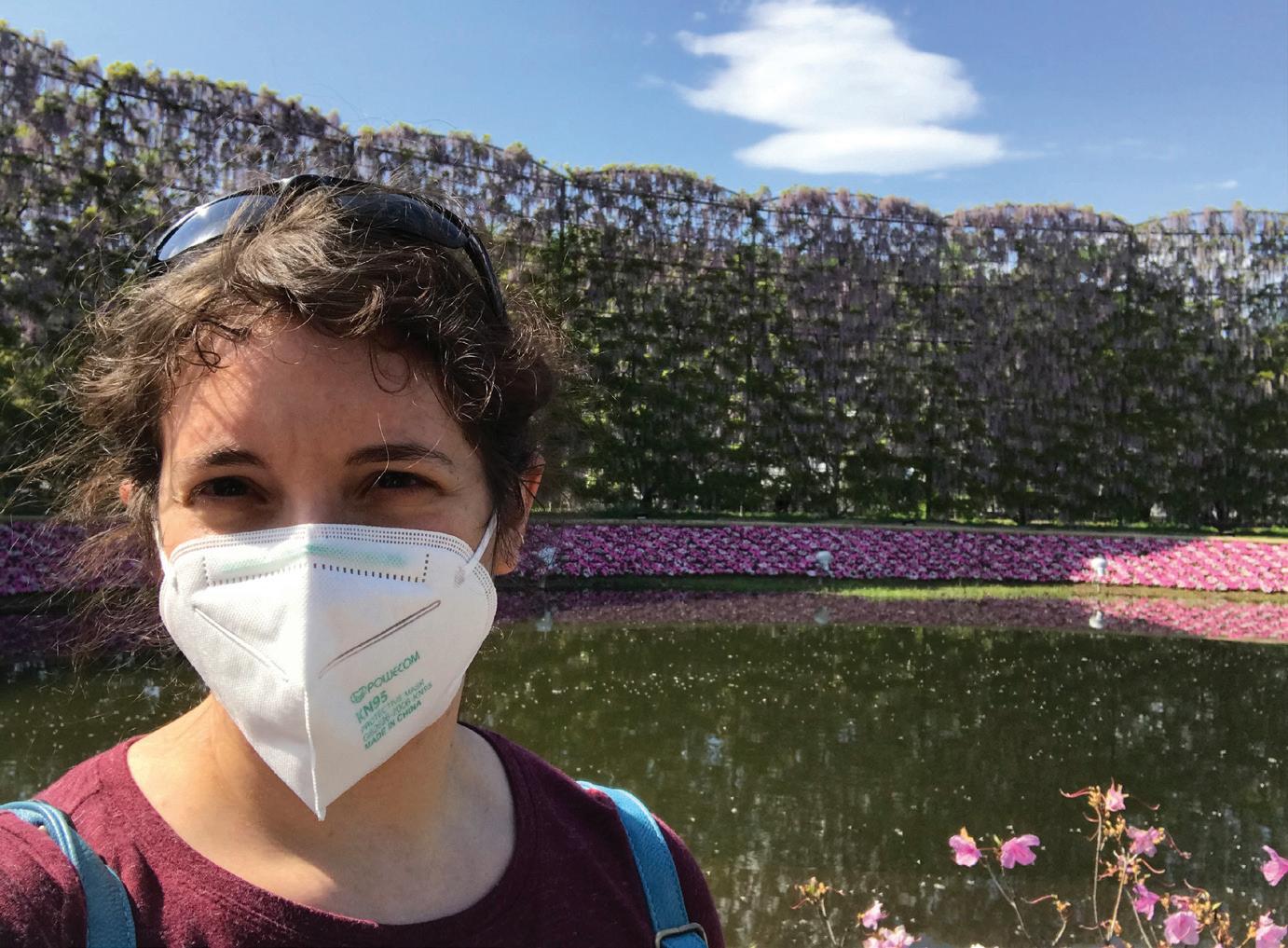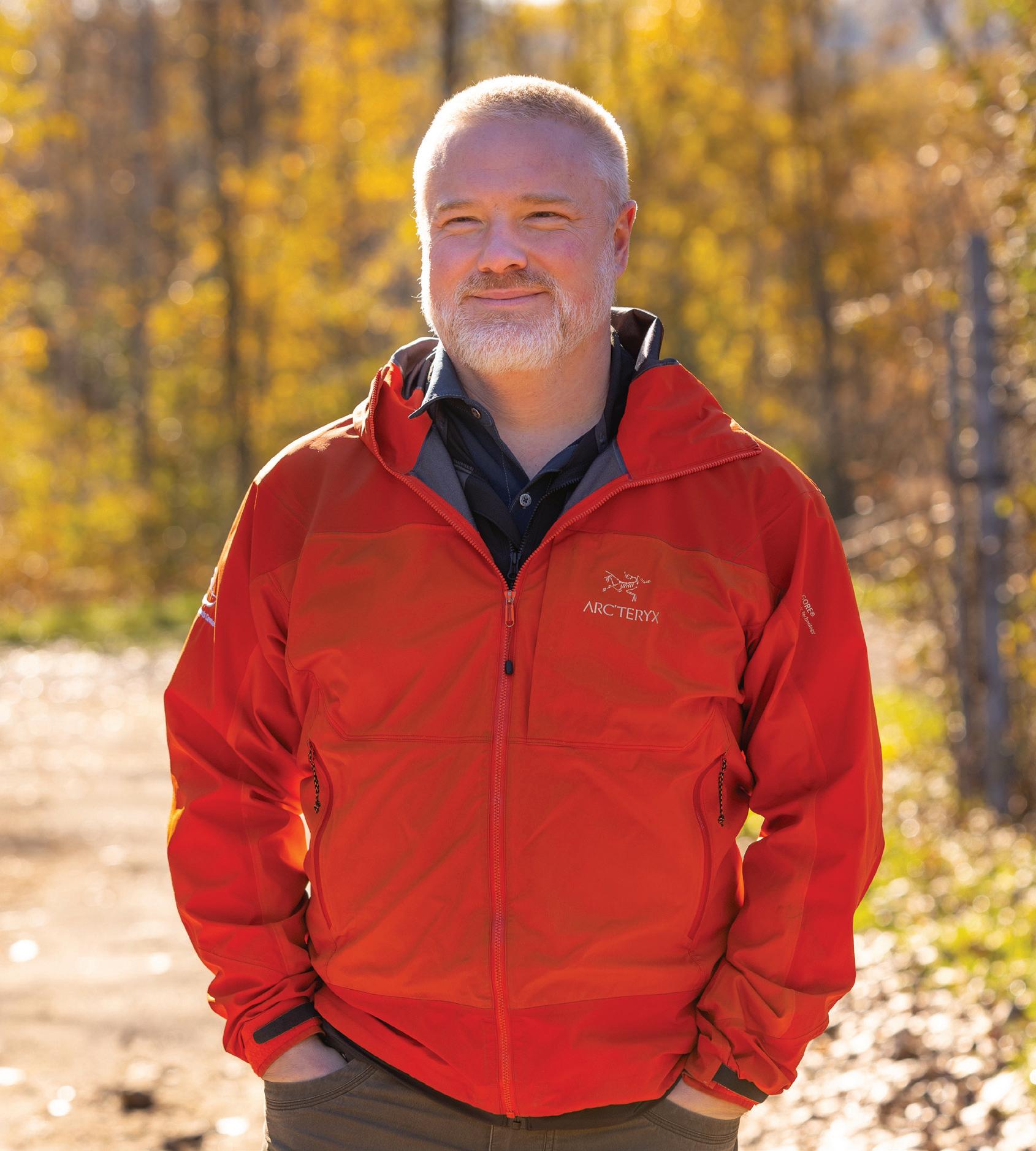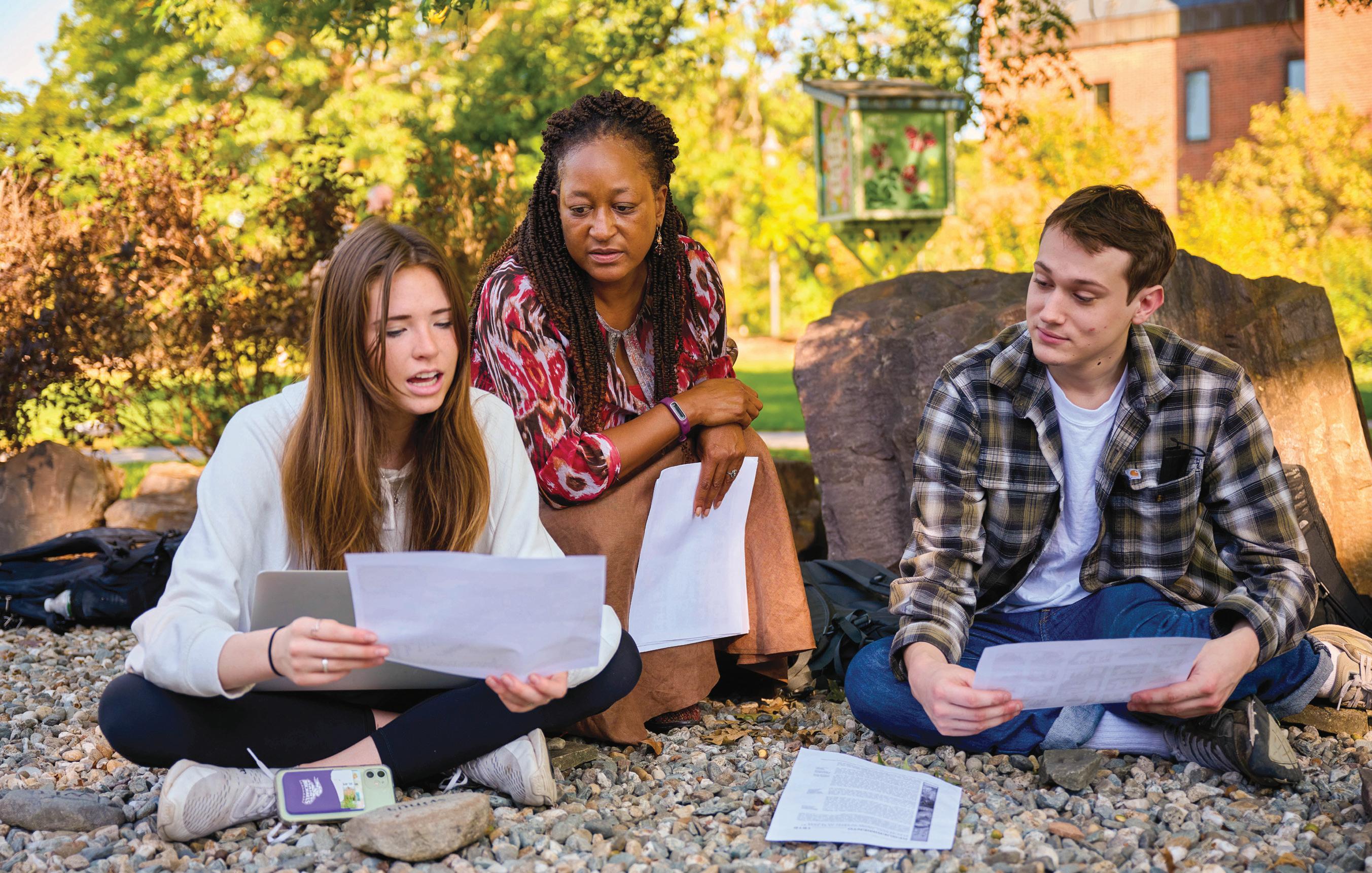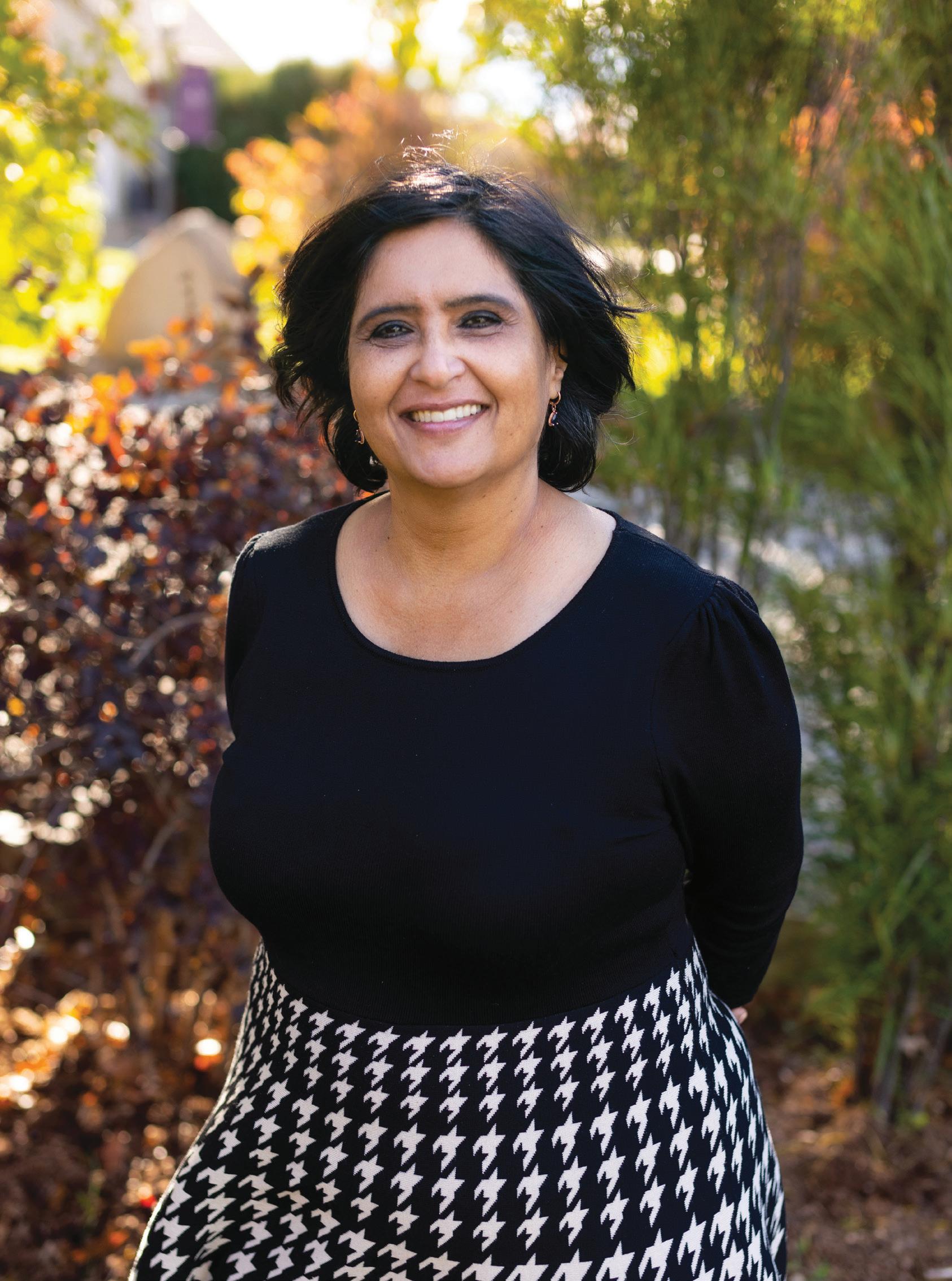
10 minute read
Reflection
Reflecti on
BY SUSAN SALTER REYNOLDS
BACK TO THE MISSION
Rev. Marcel Rainville, SSE, is proud to have grown up in the Edmundites’ original U.S. parish in Swanton, Vermont. He joined the society in 1962 and first studied Spanish in Puerto Rico between his junior and senior years at Saint Michael’s, where he studied philosophy. After graduating in 1967, he went to Venezuela, and returned to campus in 1993. He has lived a life of reflection; each day contains various habits of reflection.
“I was raised on a farm,” Fr. Rainville explains, “so I get up early. As priests, we have a daily routine that includes readings from Scripture and classic Church authors, along with prayers, and psalms from the Old Testament. We pray these prayers three or four times a day, some in community, some on our own. They are an anchor for my day.”
After morning prayer, he often stays on to do a prayerful reflection, preparing for Mass and other events. He reflects on spiritual writings that may be helpful with faculty, staff, and students he has interaction with. These daily rituals are both focused and non-focused. Often, the reflections touch on the importance of our baptism as a source of meaning for life.
Lately, Fr. Rainville has been dwelling on the question, “What is really essential?” How might he be of better service to the people who come to him for guidance? “I have been thinking how important it is not to be self-centered about my preaching. Who am I doing this for? For myself? No, for others. I’ve tried to be more sincere, more grounded. I ask myself, ‘Is this sermon really touching people’s lives or does it just make me feel good to deliver it?’ One of the concrete consequences of the pandemic,” he says, “has been a seriousness about who I am and what I do. It has made me slow down, brought me back to the idea of mission, and deepened my understanding, not as an intellectual exercise, but an existential one.”
He finds that his homilies are less doctrinaire, showing more compassion, for example, for people who are divorced but want to be faithful to the church. His relationship with people in the LGBTQ community has
— ALEX MELILLO ’11
shifted and deepened. “It has made me put myself in that person’s shoes, less like a policeman who simply imposes the law.
“I feel strongly that I need to focus on real people, instead of an ideology. Each person is a very special creation, and we need to treat them as such. The pandemic has helped me to see the beauty of each individual.
“Academia can be a head game,” he explains. “Students talk about being spiritual, but not religious. Authentic, well-lived religion is existential. Religion developed from existential experiences.”
Fr. Rainville worries about the decline in the numbers of students at Mass, especially since the pandemic. He worries about the ways that identity politics, with a focus on individual rights, have threatened community spirit. “We can’t be who we are without the village that raised us.”
REFLECTING ON THE MEANING OF HOME
Alex Melillo ’11 moved back to the U.S. from Japan in July 2021, after living in Japan for 10 years. As external affairs coordinator for U.S. Government Affairs at the American Chamber of Commerce in Japan (ACCJ), she lived a full and exciting life. But by the time the pandemic hit, she had already been feeling that she needed to live closer to her family in New Jersey. And she was feeling increasingly isolated. “We used to do 500 in-person events a year; then everything went remote. We pivoted to virtual events, and the world, and my working and living space, got a lot smaller.”
She began reflecting more on the idea of home. “My family always hated that I called Japan home,” she laughs. “‘No, no,’ they’d say, ‘New Jersey is your home!’” Japan never implemented a true lockdown, just multiple states of emergencies, and Melillo began to worry about what it would be like to be sick in a country that was not home, speaking another language, trying to navigate the health system. As the number of cases rose, and Japan prepared for the Olympics, Melillo prepared to leave. Finding a job during a pandemic was daunting, but when an opportunity opened up as an associate on the Japan team at the Asia Group in Washington, D.C., she applied. And got it. “When I leap, I leap,” she says laughingly.
For many in the Saint Michael’s community, reflection was inextricably tied to being outside. Will Coppola ’22’s favorite form of contemplation is running. “I have been running for about eight years” he says, “and it has always been the best way for me to think through any problems I have in my life.” COVID made Coppola take his life goals more seriously. “I had a lot of time to pause and analyze what I wanted to prioritize and was able to act on my goals when life started to normalize again.”
Alex Melillo ’11

Eben Widlund
RISK FACTORS
Much of the work that Eben Widlund does as the wilderness program assistant at Saint Michael’s is outside, so the pandemic, initially, did not change much about the way he works with students. “Assessing and managing risk is what we do. We are in constant dialogue around the consequences of our actions. And getting 20-year-olds to think about risk,” he admits, “can be challenging.”
The trouble with COVID, he explains, was all the unknowns. “If you don’t know what the hazards are, you don’t enter the terrain.” This is where reflection comes in. Before and after every trip Widlund, instructors, and students gather information and analyze risks. After trips, he talks further with the instructors, asking them to reflect on what they would have done differently.
“There’s a feeling of freedom being outdoors—you get to make your own choices. There is the perception that during a health risk, outside is a healthy place to be,” he says. Eventually, the pandemic forced new restrictions on being outside. As more people headed outside, trail systems became more crowded and suffered immense damage. Search and rescue is stretched to the breaking point. At home, Widlund has had more time with his daughter, age 9. He’s had more time to walk the dog, more time for bike rides. But he has been surprised by how much he misses one-on-one time with students. “I always took that for granted. Now, I’m much more likely to make sure we have that contact in the future.”
DYNAMIC REFLECTION
Since the pandemic, Amir Barghi, assistant professor of mathematics and Statistics, aspires to be more patient with himself and with others. He also tries “to cherish the connections that I have even more, and I try not to take many things in life for granted.” The future is always uncertain, he notes, but the pandemic has made this uncertainty even more tangible and universal.
To deal with these difficult times, Barghi engages in passive reflection, but also in active reflection. “I started doing origami again, after more than 10 years. I also started playing music whenever I got a chance. I guess picking up things again where we have left them long ago moves in waves through our lives.” Because much of his focus during the day is on his academic life, Barghi finds that he needs forms of active reflection with a flow, forms that are dynamic, like playing music or folding paper.
Although he has not experienced a significant shift in his priorities, he feels a renewed urgency around the importance of paying attention to signs and warnings, like the SARS outbreak in 2003 and the MERS outbreak in 2012. “We didn’t take

Kathryn Dungy, associate professor of history teaching a class in the Word Garden.
these outbreaks seriously enough. Fighting a pandemic requires a global effort. To this end, we need to become better collaborators. And at an even deeper level, we need to become better listeners, and to become kinder and more patient with each other,” he says.
A NEW NARRATIVE
Kathryn Dungy, associate professor of history, is a self-described “global person.” The pandemic clipped her wings. “I’ve spent more time in my house,” she laughs, “than I have in any one place, ever.” The pros: more time with her husband and her cats. More time noticing the changing seasons. The cons: Netflix. “How is it that everyone has more time for Netflix? I am busier than I was before, 6:30 a.m. to 7 p.m. seven days a week. I don’t have time for Netflix.” That said, Dungy did a lot of “soul searching” during the pandemic. She reimagined her courses and her pedagogy in general. Dungy teaches history and colonization of the Americas. Epidemiology is huge in this context, whether settlers were bringing people to the U.S. on ships against their will or spreading diseases that annihilated indigenous populations. Some people say that this is the first global pandemic,” she says. “But that is not true, there have been others.” The difference is that this pandemic has affected everyone.
“There will be an interesting reckoning on the other side of this,” Dungy says, speaking like an historian. With so many convergences in the spring of 2020: George Floyd’s murder, the election fallout, and the lockdown, Dungy was grateful to be forced to stay inside. “I don’t know how I would have handled all this being out,” she says. “So many of these things happened when we were forced to sit and listen.”
Listening begins at home. Dungy decided that everything she did had to answer four questions: Is it the path I’m on? Is there an inherent good? Is it hurting anyone? Is it hurting me? In the before times, she admits, she was jumping through other people’s hoops. No more. And yet, she is hopeful about the changes in academia that she has seen. “Voices that were silenced are being heard. Critical race theory, intersectionality— For my entire career, these things have been considered peripheral to the academic mission. The pandemic has given us the space to slow down and listen to these voices. ‘Go on with your narrative,’ I say. ‘All I’m asking is that you hear my voice. Add it to your own experience. Do not subtract it.’”
— SHEFALI MISRA, ASSOCIATE PROFESSOR OF POLITICAL SCIENCE
THE POWER OF REFLECTION
“I like to think that I used to be pretty good at holding those dearest to me close before COVID,” says Shefali Misra, associate professor of political science. “But since COVID that is much more self-consciously a top priority, especially as I lost both my parents during COVID, though not to it. It has also made me more sensitive, perhaps, to other people’s struggles and attentiveness to their well-being.”
Misra believes that the pandemic increased efforts to make the world a better place. Being in a situation of shared misfortune, she says, heightens compassion. “It is not a coincidence that a lot more people in the country got much more involved in the Black Lives Matter movement. Many of us were paying real attention for the first time to what has gone on forever. The real challenge is not to lose this compassion and the commitment it engendered when the world returns to normalcy and a frantic pace of life.”

What will change and what will remain the same? Misra admits that early on in life, change usually came about after some major setback or heartache. “I found it easiest then to make drastic change through a complete change of scene: pace, place, profession, people. Now the changes I tend to make are more internal to me—being attentive to how I think and whether and how I need to change my thinking.”
The power of reflection. Shefali Misra, associate professor of political science










